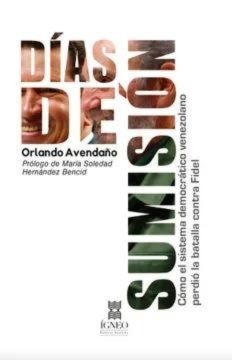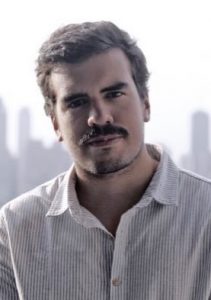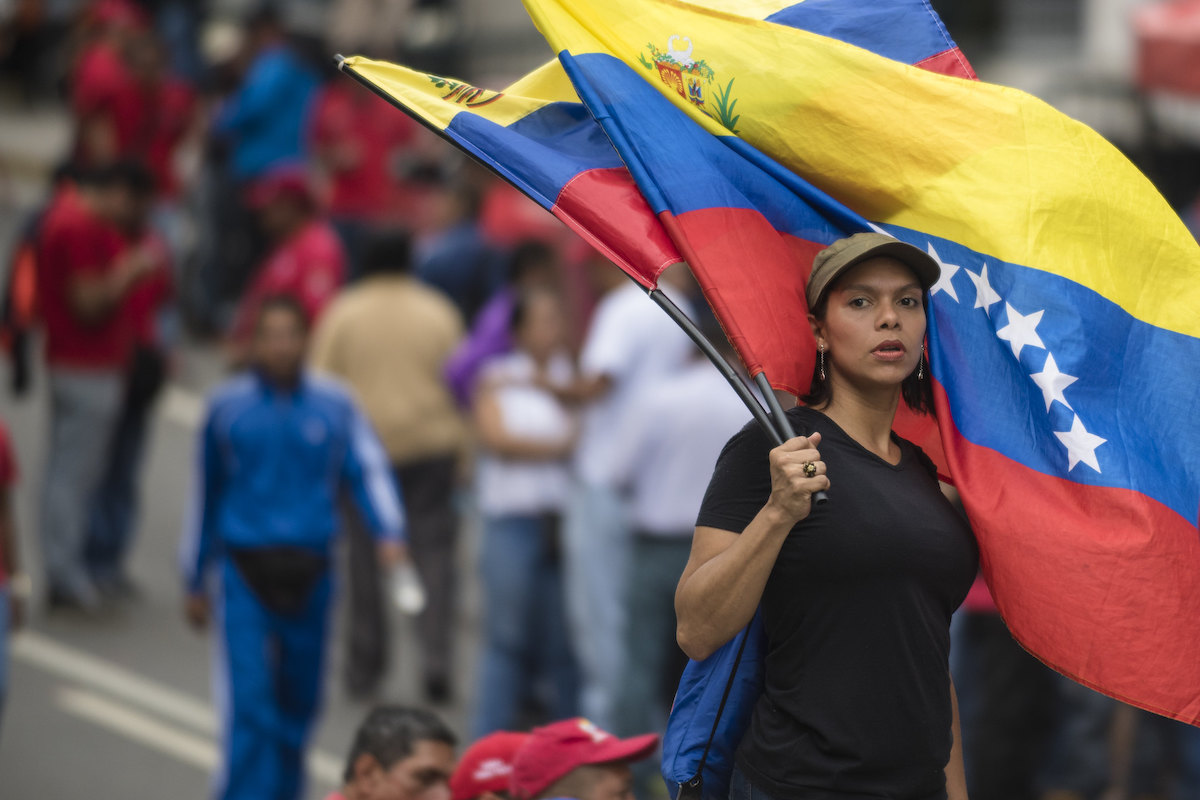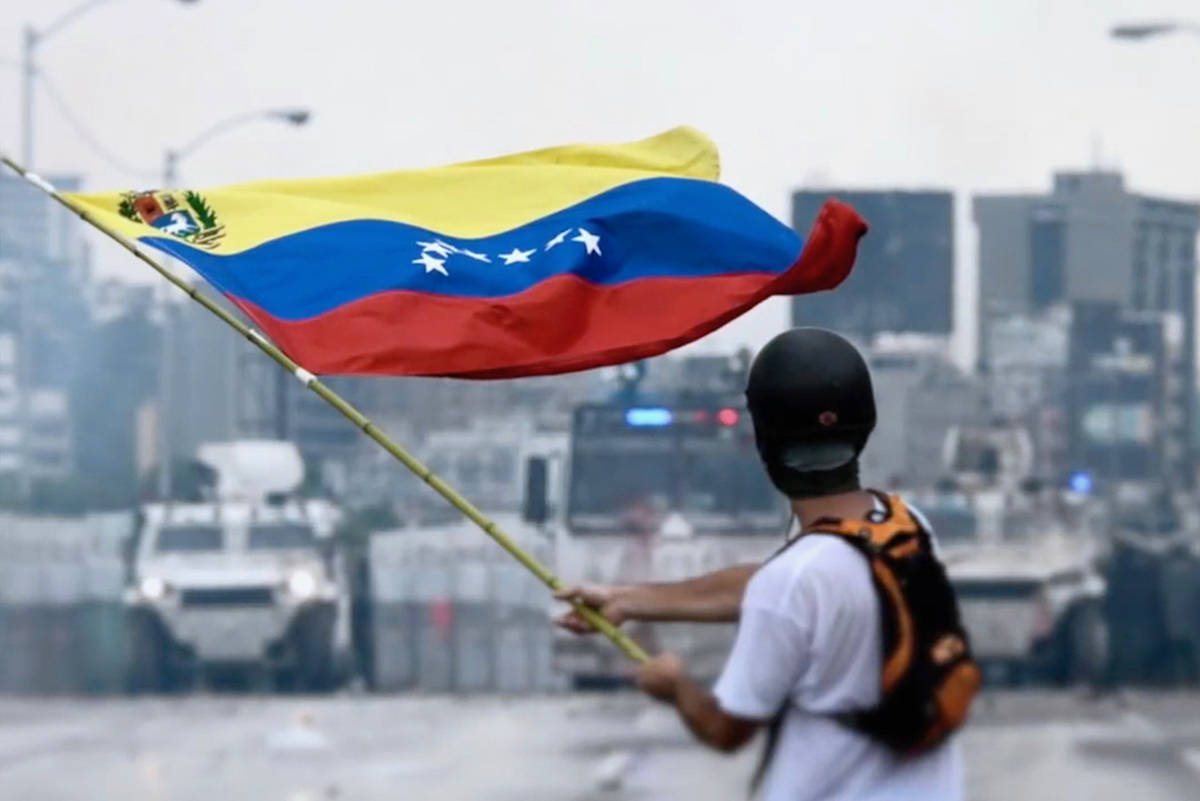Venezuela
How Venezuelan Democracy Lost the Battle Against Castro
An interview with Venezuelan journalist Orlando Avendaño.

Días de Sumisión (Days of Submission), written by Venezuelan journalist Orlando Avendaño and published last year by Editorial Ígneo, offers a fascinating history of Cuban interference in Venezuela’s democratic system, and analyses how Fidel Castro opened the way for Hugo Chávez’s disastrous presidency. I sat down with Avendaño to talk about his book and the current situation in Venezuela.
How did you come up with the idea of writing Days of Submission?
The project was born in a conversation with a prominent university professor from Caracas, in which we both took on the task of trying to determine who was responsible for Hugo Chávez’s ascent to power. In addition to the political actors best known to chavismo, we knew that there were many other individuals and factors that had somehow contributed to making a man like Chávez president of Venezuela. And then we discovered that behind all of them was Fidel Castro.
You divide your book into three parts: “The Uprising,” “The Infiltration,” and “The Consolidation.” Tell me a bit about the structure.

The three parts of this book are the three stages in the process of Castro’s persistent attempt to seize power in Venezuela. Various strategies were outlined, each a response to the failure of the last. First was the insurrection: that was the process of fomenting armed conflict in Venezuela—that is, the guerrilla warfare sponsored by Havana in the 1960s. This occurred in several Latin American nations and in countries on other continents, such as Africa. The rebel groups formed the so-called Frente de Liberación Nacional, a communist paramilitary organization that united the Venezuelan guerrilla groups—all of whom saw the Castro revolution as their “moral north”—in an attempt to overthrow the Venezuelan government. They were devastated militarily, democracy was restored, and they submitted themselves to a process of disarmament and pacification. Following the failure of this armed revolt, those who had orchestrated it adopted a new strategy of infiltration. This infiltration consisted of introducing individuals sympathetic to the Cuban revolution into the armed forces so that they could expand the project, recruit officers, and, in a few years, be in a position to seize power. After the failed coup d’état of February 4, 1992, orchestrated by officials sympathetic to the Cuban revolution, the process of consolidating their insurrectionary project began with the reunification of all the groups that had spent decades planning it, and the growing popularity of Chávez. Chávez travels to Havana in 1994.
How does Cuba control Venezuela today?

The Cuban state has interfered in five key areas of Venezuelan governance: Records and Notaries; Identification; the Bolivarian National Police Organization; the intelligence and counterintelligence agencies; and the National Armed Forces. One of the most shameful things about this process of capitulation is that is was built on a kind of platform of legitimacy. This happened with the gradual dismantling of Venezuelan institutions in exchange for the country’s surrender to Cuba, all of which was supported by a large part of Venezuelan society. Chávez handed the country over to Cuba and people applauded. He began with economic agreements and social exchanges; that is, oil in exchange for Cuban doctors, teachers, and so on. We now know that these exchanges were really an attempt by the Cuban regime to exert greater influence in other nations. Everything happened at so many levels and in so many ways that it seems surreal. The Organisation of American States Secretary General Luis Almagro recently announced that there are “some 46,000 Cubans in Venezuela, an occupation force that teaches how to torture and repress, that performs intelligence, civil identification, and migration services.” It is still difficult to detail precisely how we reached this point, and to explain specifically how each Cuban individual penetrated each area of my country’s politics and institutions.
Do you think there is any discontent among members of the head of the Venezuelan army when they see how far Cuban influence has spread through their institutions?
I should, but at this point I no longer believe there are many traces of morals, ethics, or principles within the Venezuelan armed forces. The military leadership allowed all this interference to take place in exchange for a lot of money, many privileges, and immense access to power. At one point, some very brave individuals rebelled against the first great Cuban attempt to penetrate the armed forces, which was carried out under the terrible slogan of “Socialism, Homeland, or Death,” but they were all repressed by the government.

On 30 April, the Venezuelan opposition tried to organize again to overthrow the Maduro regime. The days passed and, for now, we can only conclude that it was another failed attempt. What do you think are the causes of this failure?
There are a number of different explanations for this failure. Most agree that the rebellion was anticipated. This was probably because the information had been leaked or because the regime already had already made plans to stop Juán Guaidó at a later date. I also believe that it was a mistake to have released [opposition politician] Leopoldo López first and to place him at the forefront of this movement; I think this generated an enormous discomfort among the military who were supposed to support the insurrection. U.S. National Security Advisor John Bolton assured that a pact had already been made with the Venezuelan defense minister Vladimir Padrino López, the head of the presidential guard Iván Hernández Dalas, and the president of the Supreme Court of Justice Maikel Moreno, who had apparently promised that they would recognize Guaidó at the moment he rebelled. But then for some reason they did not act.

What should the Venezuelan opposition do to put an end to the dictatorship and return the country to its long process of democratic reconstruction?
The chavismo of some has turned Venezuela into a unique historical precedent. For the first time in human history, a much stronger, militarily powerful, and economically more robust state has submitted to the control of a much smaller and poorer one. The dictatorship has remained in power despite terrible political, economic, and social crises. It has survived international pressures, thousands of protests in the streets, the most horrible migratory crisis in the history of our continent. But none of this has brought the dictatorship to an end. This has led me to conclude that this regime will not be ousted by conventional means; it can only be overthrown by force. When using force there are only two options: internal or external. Internal force can only be imposed by those with weapons, that is, by the military groups. But over the last few years, it has been demonstrated that these groups do not intend to collaborate to bring Nicolás Maduro down, because many have been bought with state benefits, and others are so mired in scandals of corruption and repression they are afraid of what will happen to them if the regime falls. What happened on April 30 was further proof of this. In spite of the pact they had made to help defeat the dictatorship, the military leadership decided to do nothing. I now believe that only military intervention from outside has the capacity to remove Maduro from power, despite all the unfortunate and unforeseeable consequences this implies. But if we don’t take the risk, the danger will be even greater, conflict will continue to be imminent, and the stability of the entire region will be compromised.
Orlando Avendaño is a Venezuelan writer, journalist, and editor-in-chief at the PanAm Post. You can follow him on Twitter @OrlvndoA






